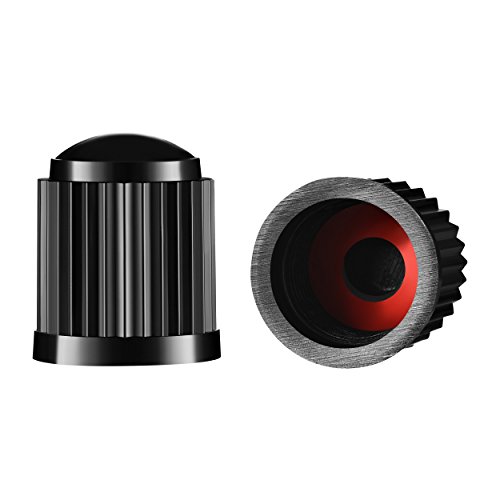One of life's annoyances is when the smallest things go missing. This is especially frustrating if what you're looking for is related to your vehicle. If you've ever gone to check the air in your tires and discovered that a valve cap is missing, you might wonder if this is negatively impacting your tires. We researched tires and air valve caps from numerous professional sources so that you'll get the definitive answer in this post.
If your tire is missing the valve cap, air will not seep out of the tire. A valve cap serves important functions, but keeping air inside your tire is not one of them.
Now that we know that air will not seep out of an uncapped valve, we'll take a look at what functions a valve cap actually serve. You might also be wondering what causes a tire to leak air or how often you should put air into your tires. For the answers to these questions and more, read ahead in this post to see what our research had discovered.
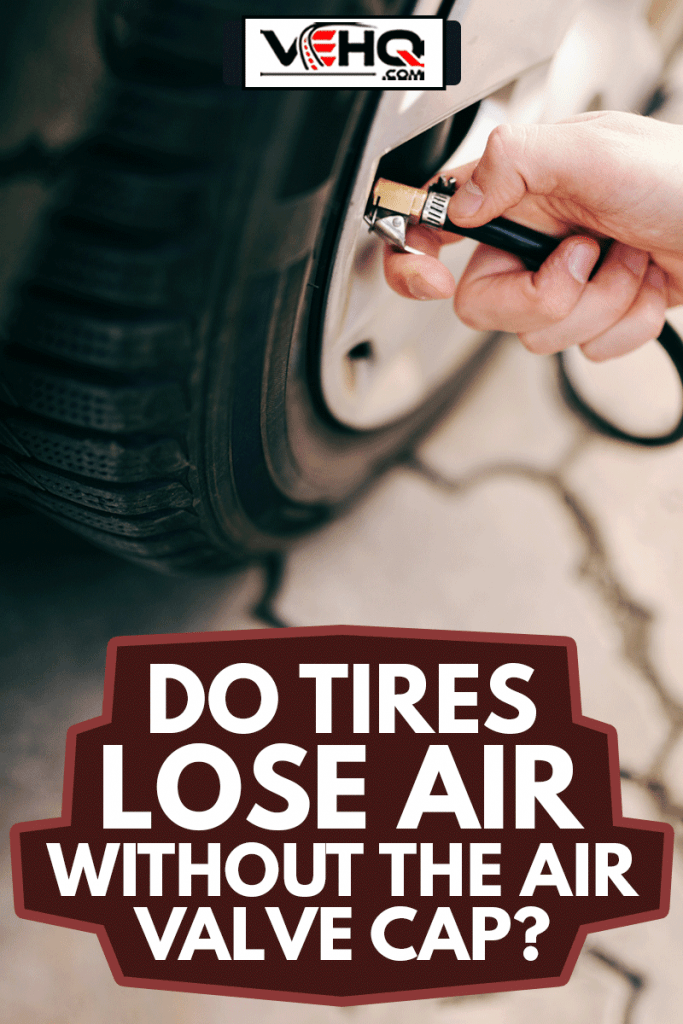
[toc]
The Valve Cap's Function
As determined earlier in this post, the valve cap does not serve as a way to keep air from leaking out of your tire. But it does serve an important function.
Your car will drive through mud, water, snow, and other elements that it encounters on the road. Your valve stem cap serves as a way to protect the valve from gunk and debris. Too much mud, for example, can damage the valve itself. This can make it more difficult to inflate your tires.
Can Tire Valve Caps Fall Off?
Valve stem caps will certainly fall off if they are not tightened properly. We'll talk about how tight they should be ahead in this post. But even if tightened correctly, valve stem caps might disappear from your car. There are several reasons for this.
If you bump your tires against curbing, you run the risk of scraping the valve stem against the concrete. If this is hit right, it can force the valve stem cap off the tire's valve stem. So be sure to check your tires regularly, especially if you think you've checked the curb with your tires.
Valve stem caps are also sometimes taken by people for whatever reason. This happens more if you have decorative valve stem caps, as these might tempt would-be thieves. Some valve stems lock into place to help deter theft.
How Tight Should Valve Caps Be?
Valve caps should always be finger-tight. You should never need to use a tool to loosen one of these caps. It's best to avoid using any sort of tool to tighten them. If your valve stem caps are screwed on too tightly, you run the risk of damaging your valve stem.
Place the valve stem cap on the valve, and make a half a turn counter-clockwise. This will help ensure that the cap is seeded properly along the stem's threads. Then, carefully turn the cap clockwise on the stem. The threads will catch, and the cap will begin to tighten.
Keep tightening the cap with your fingers until the cap is firmly in place at the base of the stem's threads.
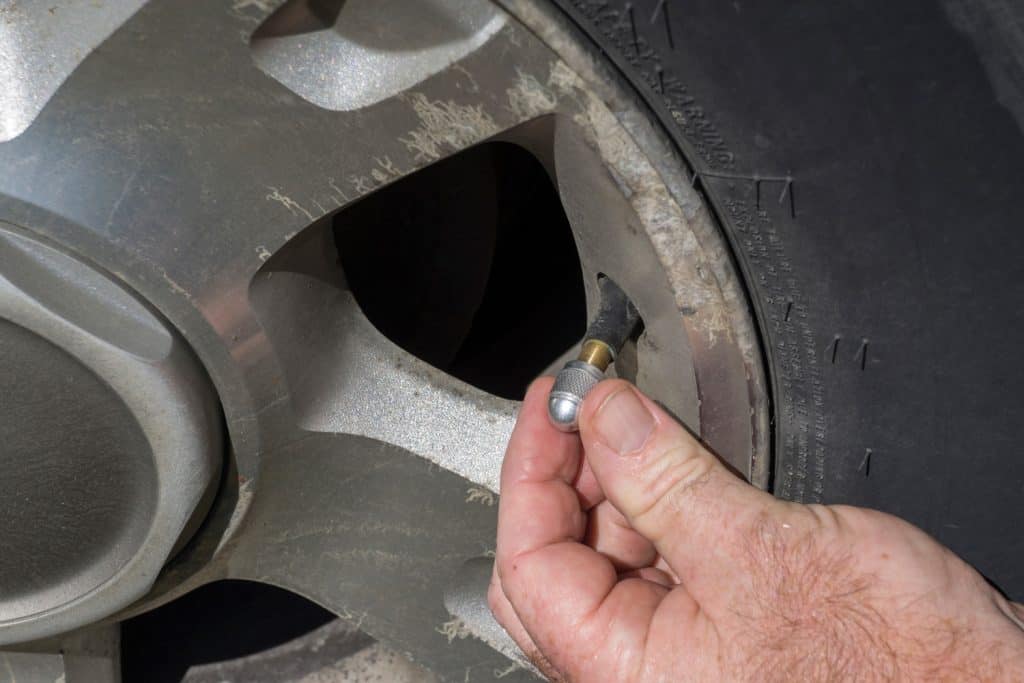
What Causes a Tire to Keep Losing air?
Tires can lose air for a number of reasons. Let's look at the most common reasons why your tire's pressure might be decreasing.
Failing Valve Stem
A faulty valve can let air seep out of your tires. Sometimes, if the valve is faulty enough, you'll be able to hear the air hissing from it.
Damaged Rim
Road hazards, like potholes, can damage the rims of your vehicle. Any aberration of your rim will cause the tire not to seat properly. And unless the tire is properly seated, it will not totally seal and leak air.
If your tire is leaking air, or if you suddenly hit something with your tires, it's important that you carefully inspect your wheel to ensure that your rim isn't damaged. Damaged rims usually cannot be fixed. So if you notice damage, you should get it replaced as soon as possible, to avoid further damage.
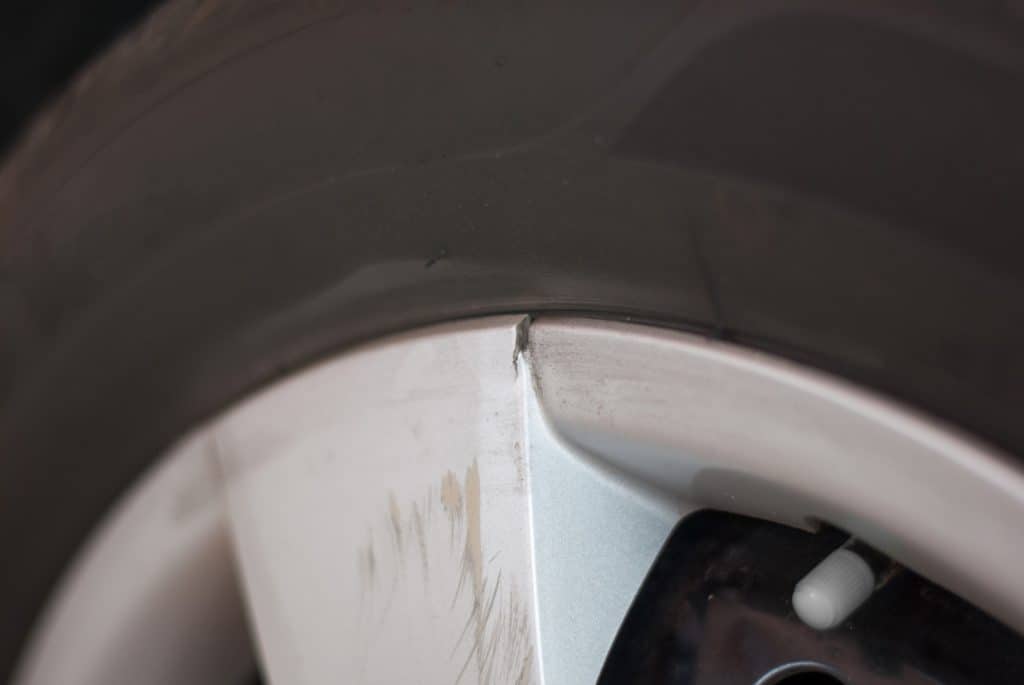
Punctured Tire
Nails, screws, and other debris can cause punctures in your tires. Obviously, if your tire has punctures or holes in it, it will allow air to escape. Sometimes, you can patch punctures that penetrate the inner tube.
If this is the case, patching is affordable; it's far less expensive to do this than to replace your tire. If you notice a puncture, take the tire to a tire shop to see if it can be patched.
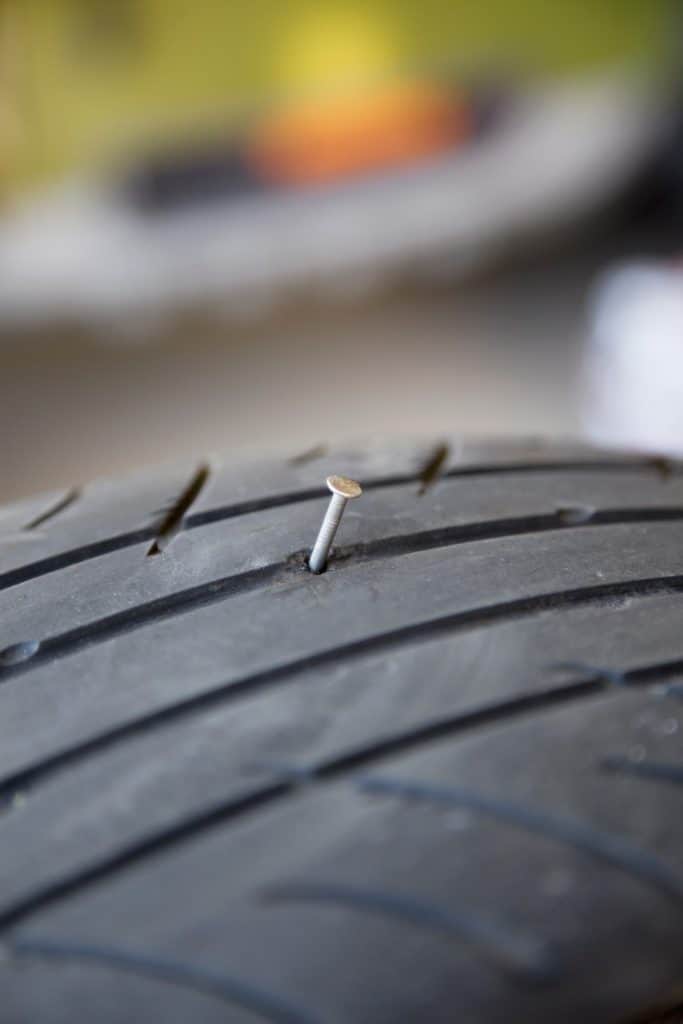
Bead Damage
The bead is where the wheel and tire seal together. Any damage to the bead, or any debris wedged between the two, will result in air seeping out of your tire.
Aging Tire
Tires don't last forever. Even tires with a minimal amount of miles will only have a useful life of six to ten years. After that, the tires will become more brittle, and slowly begin to separate. So if your tires are old, be sure to check with a tire professional to see if they are ready to be replaced.
Changes in Temperature
When the temperature drops, your tires will lose pressure. When the temperature rises, this pressure is restored. But when the temperature drops and stays cold, it can make it appear like your tire is leaking. If you live in cold climates, it's best to check your tire pressure more often, as the temperatures will impact the pressure.
Keep in mind that all tires will lose a little bit of air over time, no matter their condition. Air molecules will slowly seep out of the tire, causing the psi to drop. This is an extremely slow process, but yet another reason you should routinely check your tires' pressures.
Are Valve Caps Universal?
Most valve stem caps are universal. For passenger vehicles, you can get any valve stem cap from an auto parts store, and it will fit your valve stem. Certain heavy-duty trucks and farm equipment might have different sizes required, however.
Check out universal tire valve caps on Amazon.
How Often Should You Put Air in Your Tires?
When to inflate your tires will vary from tire to tire. Ideally, you'll want to keep them inflated to the manufacturer's recommended psi. How often you need to do this will depend on climate, any slow leaks, and your driving habits.
It's best to check to see if they need to be inflated every time you fill your tank with gas. This way, you'll have a set schedule for checking and can easily add air to your tires if they are low.
Keeping your tires inflated according to the manufacturer's recommendations is critical for many reasons. The primary reason is your safety. Improperly inflated tires will make them wear and can cause a tire to blow out. Blowouts account for a good number of auto accidents, many of which could be avoided.
Properly inflated tires also provide for maximum fuel economy, which saves you money. In addition to saving money by maximizing fuel economy, you'll also save money by keeping your tires on the road longer. The longer their useful life, the less often you have to pay to replace them.
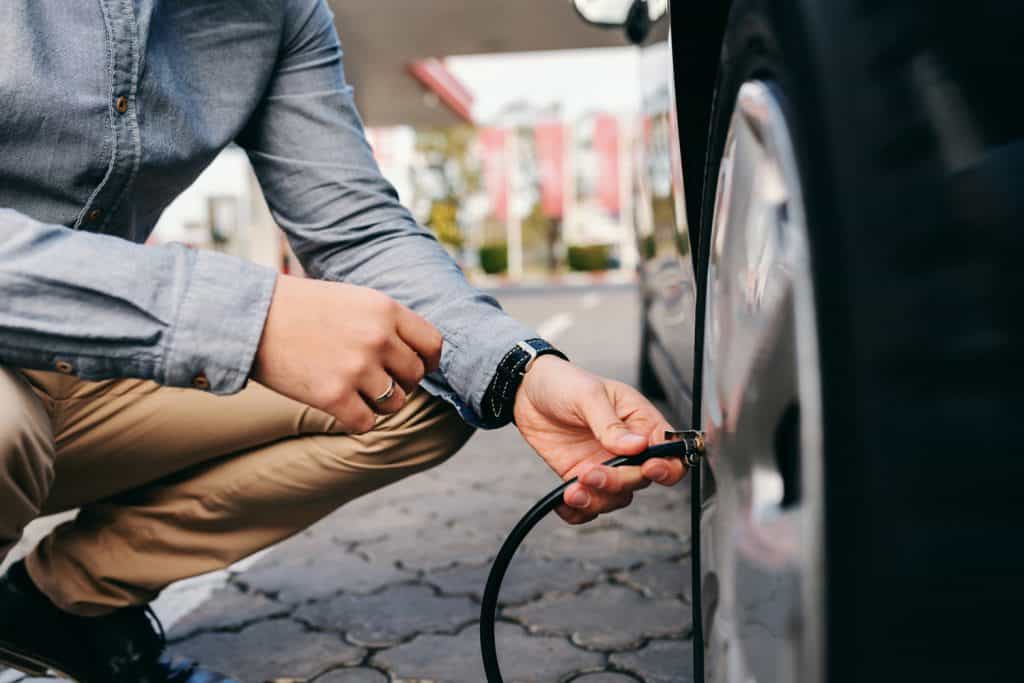
How Do You Know How Much Air to Put in Your Tire?
The tires themselves are marked with what level psi you should inflate your tires. In addition to that, newer model cars will have a sticker on the inside of the car. This sticker is usually located on the lower door jamb near the VIN.
Should you not be able to locate the sticker, your vehicle's owner's manual will have the correct size tire listed inside. Along with that information will be the psi you need to inflate your tires.
Keep in mind that if you opt for a different size of wheels and tires, the information on the sticker or in your owner's manual might be different from that on the new tire. When in doubt, refer to what is on the tire itself when determining what psi is needed.
In Closing
Valve stem caps serve an important function, but it's not about keeping the air in the tire. These often overlooked devices keep your stem from getting damaging debris and gunk inside of them. While this isn't the only way a tire can get damaged, it's an easy one to avoid.
Keeping your tires inflated properly is important for both safety and financial reasons. Check your tires' pressures regularly, and be sure to follow all of the manufacturer's recommendations when it comes to maintaining your tires.
If you found this post on tire valve caps to be helpful, we believe you'll enjoy reading the following automotive posts:
Nitrogen In Tires: Pros And Cons

